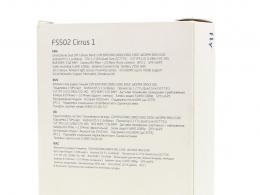Searching for information on the Internet. The first way to find plural information
Searching for information is one of the tasks that every Internet user has to solve.
When starting to search for data on the Internet, it is worth determining search target. It is helpful to answer the following questions for yourself:
- do you know the addresses of network resources from which to start the search?
- What do you already know about the problem you are looking for information about?
- What keywords should you start your search with?
- how much time are you willing to spend searching for the data you need?
There are three main ways to find information on the Internet:
Method 1:
Specifying a page address
This is the most fast way search, but it can only be used if you know exactly the address of the document or the site where the document is located.
Method 2:
Navigation through hyperlinks
This is the least convenient method, since it can be used to search for documents that are only similar in meaning to the current document. But this method is very simple and suitable for a novice user.
Method 3:
Appeal to search engine
Special search engines come to the rescue (they are also called search engines).
The result of the query is a list of links to Web pages, next to which there are specified text fragments. Most Popular search servers: Yandex
(yandex.ru), Google
(google.ru) and Rambler
(rambler.ru). The query languages of various search engines are somewhat different from each other.
Yandex search engine
- H To find information using the Yandex search engine, open the main page. The line for entering a search query is located at the top of the page, in the area highlighted with a yellow background.
Having received such a command, Yandex will look through its entire database and try to find web pages in it that contain the word or phrase we entered. At the same time, it must be taken into account in advance that the more extensive our request, the fewer web pages will correspond to it.
- P By default, on one page, Yandex displays only 10 such links, therefore, in order to get acquainted with the full search results, it will be necessary to scroll through the pages using the link numbers.
- TO Each discovered resource in the search results is represented by the title of the web page and the text of the link. In addition, in most cases, the search engine displays a small piece of text contained on a particular web page found that matches your query text. In this case, the words that we entered for the search will be highlighted in bold in these fragments.
- V at the bottom of the page with search results, there is a line "in other search engines" . Next to these words are links to several other popular search engines. Therefore, if we did not find the information we need using Yandex, you can use other search engines by clicking on the link.
You can search for information in Yandex
v simple and advanced search mode.
- Simple search
Before you start typing a query into the search bar of a search engine, carefully formulate .
The clearer the chosen wording is, the fewer sites you don’t need will be offered in the search results by the search engine.
- Advanced Search
To get to a web page that provides such opportunities, you must use a link with the name of the type "Advanced Search" .
By clicking on this link, we will see a large search form in which you can specify many parameters.
The Yandex search engine allows, for example, to configure search parameters for words depending on their location
(side by side, in one sentence, on one page) and forms.
In addition, she can search for web pages by their language
(Russian, Ukrainian, Belarusian, etc.), according to date last change
and even by file format
web pages.
Finally, with the help of Yandex, information can be searched on a specific site. This can be useful if the site you need does not have a built-in search engine.
Each search engine has its own query languages. We will get to know logical query language for Yandex, which allows you to enter additional service commands in the search bar in the normal search mode to clarify your requirements. Let's look at some of these commands.
- Use the "+" and "-" signs.
For example, if you want to learn about aquarium fish, but without selling and breeding, then we type in the search line:
"Aquarium fish - breeding - sale".
- Exact match search - sign "!".
For example, the query!ivanov will only find pages that mention this surname, not the city "Ivanovo".
- Search for an exact phrase - quotation marks.
The quotation marks cause the search engine to select only documents in which the words from the query are in exactly the same order in which we specified them in the search query. If there are no quotes, then on the request “who is to blame and what to do”, the search engine can offer us a page containing the phrase “who is to blame - to do what they say” or “well, who is to blame that Pyotr Petrovich can’t make dumplings ". Formally, in this case, the search engine will cope with its work, because the indicated passages contain all the words from the entered phrase. And the fact that they are not at all in the order in which we need is another question, which is being specified. quotes.
When working with search engines, sooner or later we will meet the word "relevance".Relevance is the degree to which the found documents match our query. For example, in Yandex it can be found at the bottom of each web page containing search results, immediately below the set of link numbers. Here it is used as a parameter for the "Sorted" function. In addition to the relevance parameter, the date option is also available.
If pages in the search results are sorted by relevance, this means that sites with the highest level of relevance to your query are listed at the very beginning, followed by resources with a lower level of relevance, and so on.
Baby search engines
- To protect children from unnecessary information, special children's search engines have been created that do not index all sites, but only sites with children's or children's topics.
ahh not only search service. There are all your favorite cartoons, coloring books, viewing filmstrips, help with various school subjects etc.
Quintura for Kids is a visual search for children's resources, designed specifically for children and aimed at elementary and middle school students.
Quintura interactive cloud is used for search. The colorful and attractive interface of the service contains several interactive pictures, by clicking on which, children can immediately choose a topic of interest to them, for example: science, music, dinosaurs or games.
- Nachalka - Children's search.
1. Specifying a page address . This is the fastest search method, but it can only be used if the address of the document is known exactly.
ADDRESS IS USED TO SEARCH THE NECESSARY INFORMATION ON THE NETWORK server address and file name on this server, for example:
http ://www.kazan.ru
(hierarchical structure - from right to left http - hypertext protocol, www - the site is in the Web space).
Parts of the address:
Ru - Russia (maybe three-letter)
Kazan - resource of Kazan,
Www - Internet resource, Web Site (web page), the site contains hyperlinks that allow you to navigate in the flow of information on the principle of a doll. The browser program allows you not to get lost (Home Page-main page).
Http is a hypertext transfer protocol.
In terms of protocols, the Internet uses several types of protocols that have evolved over time and computer technology. These include the text-based telnet protocol, the ftp file protocol, the usenet teleconferencing protocol, the wais database protocol, the gopher protocol, and others.
2. Access to the search server (search engine). Using search engines is the most convenient way to find information.
Currently, the following search servers are popular in the Russian-speaking part of the Internet:
Search Engine Example:
www.rambler.ru
www.goo-gle.ru
The search engine finds the site address by keywords, even by phrases.
There are other search engines as well. For example, an efficient search system is implemented on the mail.ru mail service server.
Search engine query language
A group of keywords, formed according to certain rules - using the query language, is called a request to the search server. Query languages for different search engines are very similar. You can learn more about this by visiting the "Help" section of the desired search server. Consider the rules for generating queries on the example of the Yandex search engine.
| Operator syntax | What does operator mean | Request example |
| space or & | Logical AND (within sentence) | physiotherapy |
| && | Logical AND (within the document) | recipes && (melted cheese) |
| I | Logical OR | photo | photography | snimok | photographic image |
| + | Mandatory presence of the word in the found document | +to be or +not to be |
| () | Grouping words | (technology \ production) (cheese \ cottage cheese) |
| ~ | Binary operator AND NOT (within a sentence) | banks ~ law |
| ~~ or ___ | Binary AND NOT operator (within document) | Paris-jou guide ~~ (agency | tour) |
| /(nm) | Distance in words (minus (-) - back, plus (+) - forward) | suppliers /2 musical coffee /(-2 4) education vacancies - /+1 students |
| “ ” | Phrase search | "little red riding hood" Equivalently: red / +1 riding hood |
| &&/(nm) | Distance in sentences (minus (-) - back, plus (+) - forward) | bank && /1 taxes |
To obtain top scores search, you need to remember a few simple rules:
Don't search for information on just one keyword.
It is best not to enter keywords in capital letters, as this may result in the same words written in lower case not being found.
If your search does not return any results, check to see if there are keywords x spelling errors.
Modern search engines provide the ability to connect to the generated query of a se-mantic analyzer. With its help, you can, by entering a word, select documents in which there are derivatives of this word in various cases, tenses, etc.
The most accessible and convenient way to search for information in world wide web is the use of search engines. At the same time, information can be searched for by catalogs, as well as by a set of keywords that characterize the searched text document.
Consider the use of search servers in more detail. The search server contains a large number of links to a variety of documents, and all these links are systematized into subject directories. For example: sports, movies, cars, games, science, etc. Moreover, these links are set by the server independently, in automatic mode by regularly viewing all Web pages that appear on the World Wide Web.
In addition, search servers provide the user with the ability to search for information by keywords. After entering the keywords, the search server starts browsing documents on other Web servers and displays links to those documents in which the specified words are found. Typically, search results are sorted in descending order by a special document rating, which shows how well a given document matches the search conditions or how often it is requested on the network.
Some important addresses:
www.kros.ru - Kazan regional educational network,
www.edu.ru - website of the Russian Ministry of Education,
www.fio.ru - Federation of Internet Education.
3. Navigation on hyperlinks. This is the least convenient method, since it can be used to search for documents that are only similar in meaning to the current document. If the current document is dedicated, for example, to music, then using the hyperlinks of this document, it will hardly be possible to get to a site dedicated to sports
The Internet provides users with access to many servers and Web pages, where an unimaginable amount of data and information is stored. In order not to get lost in such an “information ocean”, it is important to be able to search and find the information necessary for a person using a computer.
Method Navigator
1 way. By direct link.
If there is information about the address on the Internet where the information necessary for the user is located, then searching using the Internet is greatly simplified: you just need to type the site address into the browser line and familiarize yourself with the information provided. If a user is presented with a large text on a website page on the web, and he is only interested in a few lines hidden in a “million” printed characters, then an in-page search can be used. To do this, the key combination Ctrl and F is pressed, and in the proposed “Find” column, a phrase or a word is driven in that is exactly in the paragraph with the information that the user wants to find. After that, you should press "Enter". In the browser, all words that were mentioned on the page and are similar to the word that was searched for will be highlighted in a different color.
Searching for information is one of the tasks that every Internet user has to solve.
When starting to search for data on the Internet, it is worth determining search target. It is helpful to answer the following questions for yourself:
- do you know the addresses of network resources from which to start the search?
- What do you already know about the problem you are looking for information about?
- What keywords should you start your search with?
- how much time are you willing to spend searching for the data you need?
There are three main ways to find information on the Internet:
Method 1:
Specifying a page address
This is the fastest way to search, but it can only be used if you know exactly the address of the document or the site where the document is located.
Method 2:
Navigation through hyperlinks
This is the least convenient method, since it can be used to search for documents that are only similar in meaning to the current document. But this method is very simple and suitable for a novice user.
Method 3:
Contacting a search engine
Special search engines come to the rescue (they are also called search engines).
The result of the query is a list of links to Web pages, next to which there are specified text fragments. The most popular search servers: Yandex
(yandex.ru), Google
(google.ru) and Rambler
(rambler.ru). The query languages of various search engines are somewhat different from each other.
Yandex search engine
- H To find information using the Yandex search engine, open the main page. The line for entering a search query is located at the top of the page, in the area highlighted with a yellow background.
Having received such a command, Yandex will look through its entire database and try to find web pages in it that contain the word or phrase we entered. At the same time, it must be taken into account in advance that the more extensive our request, the fewer web pages will correspond to it.
- P By default, on one page, Yandex displays only 10 such links, therefore, in order to get acquainted with the full search results, it will be necessary to scroll through the pages using the link numbers.
- TO Each discovered resource in the search results is represented by the title of the web page and the text of the link. In addition, in most cases, the search engine displays a small piece of text contained on a particular web page found that matches your query text. In this case, the words that we entered for the search will be highlighted in bold in these fragments.
- V at the bottom of the page with search results, there is a line "in other search engines" . Next to these words are links to several other popular search engines. Therefore, if we did not find the information we need using Yandex, you can use other search engines by clicking on the link.
You can search for information in Yandex
v simple and advanced search mode.
- Simple search
Before you start typing a query into the search bar of a search engine, carefully formulate .
The clearer the chosen wording is, the fewer sites you don’t need will be offered in the search results by the search engine.
- Advanced Search
To get to a web page that provides such opportunities, you must use a link with the name of the type "Advanced Search" .
By clicking on this link, we will see a large search form in which you can specify many parameters.
The Yandex search engine allows, for example, to configure search parameters for words depending on their location
(side by side, in one sentence, on one page) and forms.
In addition, she can search for web pages by their language
(Russian, Ukrainian, Belarusian, etc.), according to last modified date and even by file format
web pages.
Finally, with the help of Yandex, information can be searched on a specific site. This can be useful if the site you need does not have a built-in search engine.
Each search engine has its own query languages. We will get to know logical query language for Yandex, which allows you to enter additional service commands in the search bar in the normal search mode to clarify your requirements. Let's look at some of these commands.
- Use the "+" and "-" signs.
For example, if you want to learn about aquarium fish, but without selling and breeding, then we type in the search line:
"Aquarium fish - breeding - sale".
- Exact match search - sign "!".
For example, the query!ivanov will only find pages that mention this surname, not the city "Ivanovo".
- Search for an exact phrase - quotation marks.
The quotation marks cause the search engine to select only documents in which the words from the query are in exactly the same order in which we specified them in the search query. If there are no quotes, then on the request “who is to blame and what to do”, the search engine can offer us a page containing the phrase “who is to blame - to do what they say” or “well, who is to blame that Pyotr Petrovich can’t make dumplings ". Formally, in this case, the search engine will cope with its work, because the indicated passages contain all the words from the entered phrase. And the fact that they are not at all in the order in which we need is another question, which is being specified. quotes.
When working with search engines, sooner or later we will meet the word "relevance".Relevance is the degree to which the found documents match our query. For example, in Yandex it can be found at the bottom of each web page containing search results, immediately below the set of link numbers. Here it is used as a parameter for the "Sorted" function. In addition to the relevance parameter, the date option is also available.
If pages in the search results are sorted by relevance, this means that sites with the highest level of relevance to your query are listed at the very beginning, followed by resources with a lower level of relevance, and so on.
Baby search engines
- To protect children from unnecessary information, special children's search engines have been created that do not index all sites, but only sites with children's or children's topics.
AHA is not only a search service. There are all your favorite cartoons, coloring books, viewing filmstrips, help with various school subjects, etc.
Quintura for Kids is a visual search for children's resources, designed specifically for children and aimed at elementary and middle school students.
Quintura interactive cloud is used for search. The colorful and attractive interface of the service contains several interactive pictures, by clicking on which, children can immediately choose a topic of interest to them, for example: science, music, dinosaurs or games.
- Nachalka - Children's search.
General information.
Currently, the Internet unites hundreds of millions of servers that host billions of different sites and individual files containing various kinds of information. It's a giant repository of information. There are various methods of searching for information on the Internet.
Search by known address. The required addresses are taken from directories. Knowing the address, just enter it in address bar Browser.
www.gov.ru - server of Russian state authorities.
Address construction by the user. Knowing the Internet address generation system, you can construct addresses when searching for Web sites.
It is necessary to add a thematic or geographical domain to a keyword (the name of a company, enterprise, organization or a simple English noun), and intuition must be connected.
Commercial Web site addresses:
www.cnn.com (CNN World News),
www.sony.com (from SONY),
www.mtv.com (MTV music news).
Addresses of educational institutions:
www.ntu.edu (US National University).
Regional server addresses:
www.poland.net (Poland),
www.israil.net (Israel).
Internet search engines
To search for information on the Internet, special information retrieval systems have been developed. Search engines have a regular address and are displayed as a Web page containing special means to organize the search (search string, subject catalog, links). To call a search engine, just enter its address in the address bar of the Browser.
According to the method of organizing information, information retrieval systems are divided into two types: classification (rubricators) and dictionary.
Rubricators (classifiers) are search engines that use a hierarchical (tree-like) organization of information. When searching for information, the user looks through thematic headings, gradually narrowing the search field (for example, if you need to find the meaning of a word, then first you need to find a dictionary in the classifier, and then find the right word in it).
Dictionary search systems are powerful automatic software and hardware systems. With their help, information on the Internet is viewed (scanned). Data on the location of this or that information is entered into special reference books-indexes. In response to the request, a search is performed in accordance with the query string. As a result, the user is offered those addresses (URLs) where the searched word or group of words was found at the time of scanning. By selecting any of the proposed links, you can go to the found document. Most modern search engines are mixed.
The most famous and popular systems search:
www.aport.ru www.yahoo.com www.rambler.ru www.yandex.ru www.altavista.com www.google.com
There are systems that specialize in searching information resources in various directions.
Search for people on the Internet:
www.whowhere.ru www. bigfoot.com
Search by newsgroups (Usenet):
www.dejanews.com
Subject search engines:
Search software:
Search in file archives:
http://ftpseach.com city.ru, http://ftpsearch. licos.com
Catalogs (thematic collections of links with annotations):
http://www.atrus.ru
Often, an effective search for information can be carried out using regional catalogs - specialized servers containing data about enterprises or Web resources of a city or region. For example, for St. Petersburg, such a catalog is located at http://www.spb.ru.
A list of IPS can be found at www.monk. newmail.ru
A more detailed list of search engines and directories is presented in Table. 3.2.
Query Execution Rules
In each search engine, in the Help section, you can get information on how to search, how to compose a query string. Below is information about a typical, "average" query language.
Simple request.
Enter one word that defines the search topic. For example, in the Rambler.ru search engine, it is enough to enter: automation.
Documents are found that contain the words specified in the request. All forms of Russian words are recognized, as a rule, the case of letters is ignored.
You can use the character "*" or "?" in the query. Sign "?" in the keyword, one character is replaced, in place of which any letter can be substituted, and the character "*" is a sequence of characters.
For example, a query automaton* will find documents that include the words automatic, automatic, and so on.
Complex request.
Often there is a need to combine keywords to get more specific information. In this case, additional linking words, functions, operators, symbols, combinations of operators separated by brackets are used.
For example, the query music & (beatles | beatles) means that the user is looking for documents containing the words music and beatles or music and beatles.
Table 3.1 shows the rules for generating requests adopted in the Aport system (http://www.aport.ru).
Table 3.1
Operators for Forming Requests
| Operator | Synonyms | A comment |
| AND | AND & | The query will find documents containing both keywords. It may or may not be written. For example, the query: computer science and textbook is equivalent to computer science textbook |
| OR | OR | | Searches for those documents that use either of the specified words or both words at the same time |
| NOT | NOT-~ | The search is limited to documents that do not contain the word specified after the operator |
| " " | " " | Double or single quotes allow you to find a phrase |
| date= | date:date= | The search is limited to documents that fall within the specified date interval. Example 1. currency date=01/02/2002-01/03/2002. This request will return documents containing the word "currency" and having a date between February 1, 2002 and March 1, 2002. Example 2. date=01/03/2002 currency Example 3. date:<02/03/2002 валюта |
Table 3.2
List of search servers and directories
| The address | Description |
| www.excite.com | Search engine with node reviews and guides |
| www.alta-vista.com | Search server, advanced search capabilities available |
| www.hotbot.com | search server |
| www.poland.net www.israil.net | Regional search servers of Poland, Israel |
| www.ifoseek.com | Search Server (easy to use) |
| www.ipl.org | Internet Publik library, a public library operating as part of the World Village project |
| www.wisewire.com | WiseWire - organization of search using artificial intelligence |
| www.webcrawler.com | WebCrawler - search server, easy to use |
| www.yahoo.com | Web catalog and interface for accessing full-text search on the AltaVista server |
| www.aport.ru | Aport - Russian language search server |
| www.yandex.ru | Yandex - Russian-language search server |
| www.rambler.ru | Rambler - Russian-language search server |
| Internet Help Resources | |
| www.yellow.com | Internet Yellow Pages |
| monk. newmail.ru | Search engines of various profiles |
| www.top200.ru | Top 200 Websites |
| www.allru.net | |
| www.ru | Catalog of Russian Internet resources |
| www.allru.net/z09. htm | Educational Resources |
| www.students.ru | Russian student server |
| www.cdo.ru/index_new. asp | Distance Learning Center |
| www.open. ac. UK | Open University UK |
| www.ntu.edu | US National University |
| www.translate.ru | Electronic text translator |
| www.pomorsu.ru/guide. library.html | List of links to net libraries |
| www.elibrary.ru | Scientific electronic library |
| www.citforum.ru | E-library |
| www.infamed.com/psy | Psychological tests |
| www.pokoleniye.ru | Internet Education Federation website |
| www.method. people.ru | Educational Resources |
| www.spb. www.osi.ru/ic/distant | Distance learning on the Internet |
| www.examen.ru | Exams and tests |
| www.kbsu.ru/~book/ | Computer science textbook |
| Mega. km.ru | Encyclopedias and dictionaries |
Searching for information on the Internet: pitfalls
Problems that do not lie on the surface often make themselves felt only "in retrospect", after a certain stage of prospecting work has been completed and, perhaps, based on its results, some decision has already been made. What prevents making the situation transparent from the very beginning of the operation of this or that information retrieval system (IPS)? The answer is quite simple: the lack of comprehensive information of this kind on the part of the developer. The direct consequence of this is the unreliability of the received data and their uncontrolled loss. It is rare to find a search engine on the Web that does not have some "undocumented" features. It would seem that the user does not need so much information, namely:
how the IPS database is filled and what is its volume;
full range of possibilities of the search language of the system;
the main features of the presentation of search results, primarily the algorithm for ranking records from the list of responses to a search query.
Alas, the source of such information is usually not a document available from the main page of the search server, but publications of individual authors scattered over the Web, books and computer magazines. The reasons for this state of affairs, apparently, include not only the negligence of the developer, but also a factor called marketing policy. Simply put, providing the search engine with the most complete information about itself does not always have a positive effect on its ranking. Nevertheless, in some cases, the user is quite capable of taking the situation under control. It is often possible to find out the features of the selected search service with the help of testing. Building special test queries that quickly clarify exactly that aspect of the system's operation that is most important for the current task turns out to be non-trivial in many cases. How to avoid some of the troubles when working with IPS, we will devote our discussion. As examples illustrating the presentation, widely known Internet search engines will be considered.






